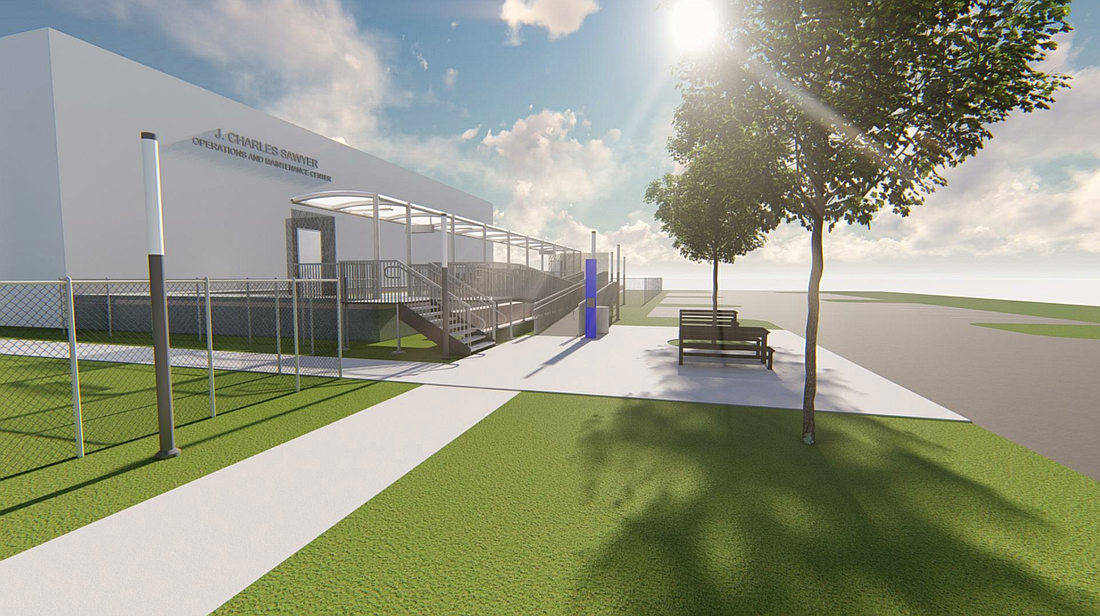
The Jacksonville Transportation Authority applied for a building permit to construct a Skyway station in Brooklyn at a job cost of $800,000.
JTA filed the application March 6 to build the elevated light rail platform on 0.11 acres at 725 Leila St.
Brooklyn Station will connect to adjacent Skyway staging tracks that JTA plans to convert to support passenger transit. The project will link the Central Skyway Station at West Bay and Lee streets in LaVilla to the Downtown Northbank neighborhood.
Site plans created Jan. 10 list Michael Baker International Inc. as the project engineer.
JTA Senior Vice President and Chief Operating Officer Cleveland Ferguson III provided a project overview stating construction will include the Skyway platform and American with Disabilities Act-compliant ramps with two entrance and exits points.
Passenger parking will be provided at an existing JTA surface lot near Riverside Avenue. A fabric canopy will be installed over the passenger waiting and boarding areas.
Two refurbished Skyway trains will be used for the station wrapped in a “Brooklyn Shuttle theme,” according to the project summary.
JTA requested a $761,000 federal State of Good Repair Grant to pay for construction. The authority expects to launch the service in July at an annual $208,000 cost to operate the station.
For fiscal year 2020, JTA budgeted $95,998 for operational costs with $52,614 from the grant. JTA Communications Director David Cawton said March 9 that construction is contingent on the grant award. He said there are “good indications” the authority will receive the money.
The station stems from a 2013 JTA board directive to research a Skyway extension into Brooklyn. At that time, the project budget was $19.8 million. JTA shelved the project after it filed to secure a $10 million grant to partially fund the extension.
“With nearly 1,000 residences in development or active, a hotel, restaurants and stores in Brooklyn, we think it’s a natural extension of the Skyway,” Cawton said.
To reduce the project cost, JTA officials moved to retrofit the Skyway staging tracks in Brooklyn rather than build more rail track infrastructure. Cawton said JTA hopes to bring the cost down to $500,000.
The Brooklyn extension eventually will be adapted to support autonomous vehicles in phase II of JTA’s proposed Ultimate Urban Circulator program.